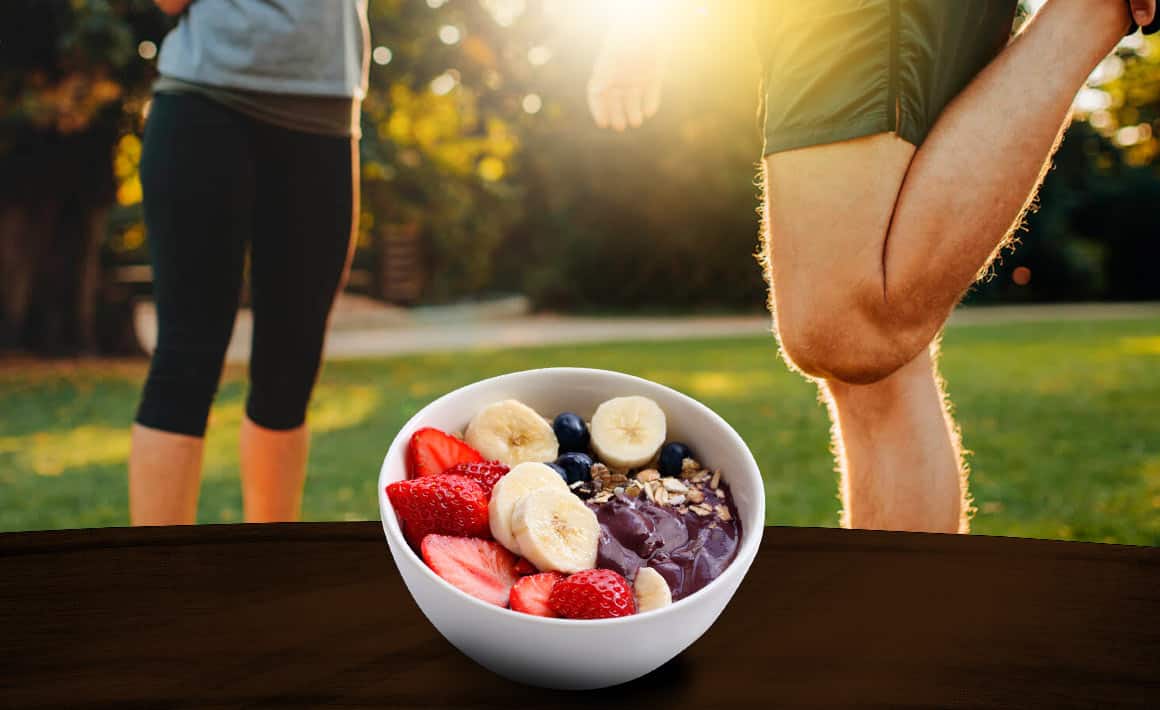As the new year begins, many of us are setting fitness goals—whether it’s building muscle, increasing endurance, or simply feeling more energized during workouts. However, while exercise itself plays a pivotal role in achieving these goals, an often overlooked but equally important aspect is nutrition—specifically pre-workout nutrition. What you eat before a workout can significantly impact performance, recovery, and overall results. But with the vast array of supplements, advice, and trends out there, how do you know what’s truly effective? In this article, we explore how to optimize pre-workout nutrition in a way that aligns with both science and practicality, highlighting what’s worth trying this year.
The Importance of Pre-Workout Nutrition
Before diving into specific foods or supplements, it’s crucial to understand why pre-workout nutrition is so important. Your body requires fuel for exercise, and what you eat beforehand can affect everything from your energy levels to your strength, endurance, and recovery. The primary goal of pre-workout nutrition is to provide your body with the necessary macronutrients and micronutrients to maximize performance, reduce fatigue, and promote recovery. Essentially, it’s about ensuring that your muscles have enough glycogen (the stored form of carbohydrate) and amino acids to function efficiently during exercise.
Studies have shown that consuming the right nutrients before a workout can help improve endurance, enhance strength, and decrease muscle breakdown, ultimately leading to better results in the gym. But the timing, type, and quantity of nutrients can vary depending on the workout intensity and individual goals. Let’s break down some of the key components to consider when planning your pre-workout nutrition.
The Key Components of Pre-Workout Nutrition
-
Carbohydrates: The Fuel for Energy
Carbohydrates are arguably the most important macronutrient when it comes to pre-workout nutrition. Carbs are your body’s preferred source of energy during exercise, especially for high-intensity activities like running, weightlifting, or circuit training. During exercise, your body relies on glycogen stored in muscles and the liver to provide quick, accessible energy. If your glycogen stores are depleted, you may experience fatigue, reduced performance, and even muscle breakdown.
Research shows that consuming a moderate amount of complex carbohydrates before a workout can help replenish glycogen levels and provide sustained energy throughout your session. Good sources of pre-workout carbohydrates include whole grains like oats, sweet potatoes, or brown rice, as well as fruits like bananas and apples. These foods are rich in fiber, which also helps to provide a steady release of energy during your workout.
What to try this year: If you haven’t already, try incorporating oatmeal with fruit or a whole grain toast with almond butter as your pre-workout meal. For something quick and easily digestible, a banana or an apple with a handful of almonds can provide both simple and complex carbs for quick energy release and longer-lasting fuel.
-
Protein: For Muscle Repair and Recovery
Protein plays a vital role in muscle repair and growth, especially after resistance training. While protein consumption after a workout is typically emphasized for muscle recovery, consuming it before your workout can help prevent muscle breakdown during intense exercise. Amino acids, the building blocks of protein, are used by muscles during exercise to repair damaged tissue and stimulate muscle growth.
However, the timing of protein intake is crucial. A small, easily digestible source of protein consumed 30-60 minutes before exercise can help fuel muscles during your workout without weighing you down. Protein shakes, Greek yogurt, or a small portion of lean chicken or turkey can be excellent pre-workout options.
What to try this year: Protein smoothies are a great option, as they are both convenient and versatile. A simple smoothie made with whey protein powder, spinach, almond milk, and frozen berries provides a solid dose of protein, as well as antioxidants and fiber to fuel your muscles. If you prefer whole food options, a boiled egg or cottage cheese with sliced vegetables can offer a similar protein boost.
-
Healthy Fats: Sustained Energy and Focus
Fats are typically not the first nutrient that comes to mind when thinking about pre-workout meals, but they have an important role in providing sustained energy and supporting overall health. Healthy fats, particularly omega-3 fatty acids, can help regulate blood sugar levels and provide longer-lasting energy during extended periods of exercise.
However, it’s important to balance the timing and portion size of fats before a workout. Fats take longer to digest, and eating a large amount right before exercise can cause discomfort or sluggishness. Instead, opt for a small serving of healthy fats a couple of hours before your workout to allow time for digestion.
What to try this year: For a balanced pre-workout meal, incorporate a small serving of avocado or nut butter. A slice of whole grain toast with avocado or a handful of mixed nuts can provide the perfect amount of healthy fats and fiber to keep you energized without feeling overly full.
-
Hydration: A Key Factor for Performance
Hydration is one of the most fundamental aspects of pre-workout nutrition. Water is essential for maintaining proper body function and preventing dehydration, which can impair performance, increase the risk of injury, and hinder recovery. Even mild dehydration can lead to a noticeable decrease in strength and endurance, so it’s vital to start your workout well-hydrated.
It’s not only about drinking water—electrolytes, such as sodium, potassium, and magnesium, play a key role in fluid balance and muscle function. For intense workouts or longer durations, electrolyte drinks or coconut water can help replenish these vital minerals.
What to try this year: Consider starting your pre-workout routine with electrolyte-enhanced water or coconut water. If you’re doing an intense cardio session or heavy lifting, a sports drink with electrolytes (without excess sugar) can help maintain your performance and prevent muscle cramps.
-
Timing: When to Eat Before a Workout
While what you eat is important, when you eat is just as crucial. Eating too close to your workout can lead to feelings of sluggishness or indigestion, while waiting too long can leave you feeling drained. A good rule of thumb is to consume your pre-workout meal 30-90 minutes before exercising, depending on how your body tolerates food.
If you’re eating a large meal with a mix of carbs, protein, and fats, aim for at least 60-90 minutes of digestion time. If you prefer a lighter snack, you can typically eat 30-45 minutes before hitting the gym.
What to try this year: Experiment with meal timing to find what works best for you. Some individuals thrive on eating a full meal about an hour before their workout, while others find that a light snack 30 minutes prior gives them the energy they need. Greek yogurt with fruit or a protein bar may be a great option for those with less time before a workout.
Supplements: What’s Worth Considering?
While whole foods should be prioritized, there are a few supplements backed by science that can enhance your pre-workout nutrition.
-
Caffeine: Caffeine is a well-known performance booster, enhancing focus, endurance, and strength. Studies show that caffeine can improve performance in both aerobic and anaerobic activities, especially during high-intensity training. A small cup of coffee or a pre-workout supplement containing caffeine may give you the edge you need.
-
Creatine: Creatine is one of the most researched and effective supplements for increasing strength and power output. It helps replenish ATP (adenosine triphosphate), your body’s main energy source during short bursts of activity. Taking creatine before a workout can help improve strength, sprinting performance, and muscle endurance.
-
Beta-Alanine: This amino acid helps buffer acid in muscles, which can delay fatigue and improve performance during high-intensity exercise, particularly during prolonged efforts.
What to try this year: If you haven’t already, experiment with caffeine or creatine before workouts to see how they affect your performance. Just be mindful of dosages and avoid taking them too close to bedtime to prevent sleep disruption.
Conclusion
Optimizing pre-workout nutrition is a simple yet powerful way to enhance your fitness results this year. By carefully considering your macronutrient intake—carbohydrates for energy, protein for muscle preservation, fats for sustained focus, and hydration for optimal performance—you can create a well-rounded pre-workout meal that supports your exercise goals. Timing and supplementation also play critical roles in maximizing your workouts, whether you’re aiming to build muscle, increase endurance, or improve overall performance. As you experiment with different foods, meals, and supplements, you’ll discover what works best for your body and your fitness routine. Start this year with a solid foundation of nutrition, and watch how your performance and results improve.





